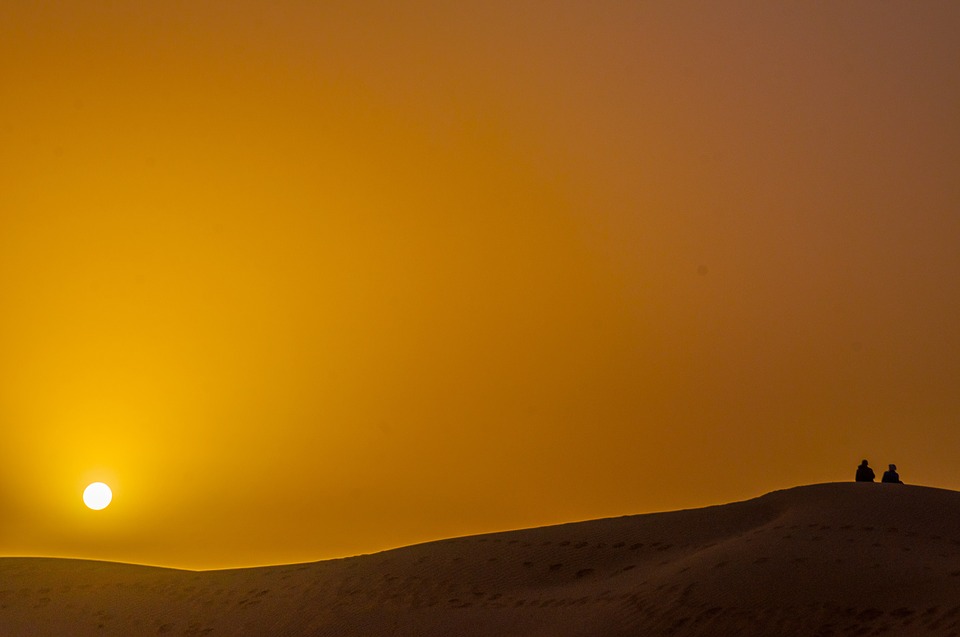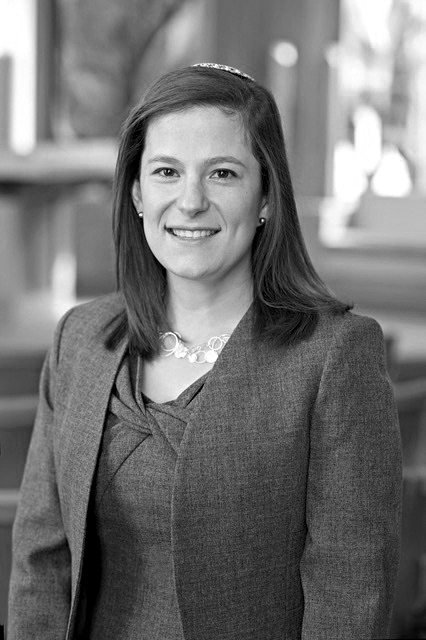 Photo from Pixabay.
Photo from Pixabay. PARSHA: Shemot, EXODUS 2:11-12
“Now it came to pass in those days that Moses grew up and went out to his brothers and looked at their burdens, and he saw an Egyptian man striking a Hebrew man of his brothers. He turned this way and that way, and he saw that there was no man; so he struck the Egyptian and hid him in the sand.”
Rabbi Marc Angel
Institute for Jewish Ideas and Ideals

This passage usually is understood to mean that Moses wanted to be sure he would not be seen when he slew the Egyptian. But it might be understood differently.
Moses was outraged by the entire system of slavery. Confronted with an Egyptian beating a Hebrew slave, he realized that “there was no man” — the oppressor had become a savage beast, the oppressed had become a work animal. The human element had vanished; there was no mercy, no mutual respect, no sympathy for each other. He could not deal with the injustices taking place in Egypt — a land where “there was no man,” where people had been reduced to animal status, to being objects rather than subjects.
The Torah’s story of the redemption of the Israelite slaves is ultimately a profound lesson teaching that each human being has a right to be free, to be a dignified human being, and to be treated as a fellow human being (as well as an obligation to treat others as such). Slavery is an evil both for the oppressor and the oppressed. It is a violation of the sanctity of human life.
When human beings treat each other as objects, humanity suffers. We can retain our own humanity only when we recognize the humanity of each of our fellow human beings.
Rabbi Adam Greenwald
American Jewish University

One of the great mysteries of Moses’ life is when he learns his own origin story. We, the readers, know well that the infant Moses was saved by a collection of rebellious women — the midwives who deliver him and do not turn him over to the authorities, the mother and sister who hatch a desperate plot to place him in a basket on the Nile, the princess who takes a foundling into the palace and raises the child there as a son.
However, the texts are silent on when and how the young Moses discovers his slave origins. All we learn is that at some point in his early adulthood he goes out and sees Hebrew slaves and identifies them as “brothers,” and then unleashes lethal violence against their taskmaster.
Had Moses known of his true origin for many years, holding his shame and anger at bay, until one day he snapped and couldn’t take it any longer? Or was it that Moses learned of his origin just in that moment and this fateful encounter happened as he fled the palace in disgust and despair? Or, perhaps most intriguingly of all, could it be that Moses never actually learns the true circumstances of his birth, but comes to identify with slaves as brothers, to see injustice done to one as injustice done to all?
Rabbi Cantor Hillary Chorny
Temple Beth Am, Los Angeles

What gave Moses the sense of urgency, the need to go out from his place of privilege and question what was happening out in the world beyond his? Verse 11 tells us that Moses went out toward his kinsmen — implying that it was a sense of kinship with the laborers that drew him to be a witness to their struggle. The commentator Sforno notes that it is that very same sense of kinship that led Moses to avenge the death of the Hebrew man.
What would our world look like if we were all compelled by a sense of kinship with those who occupy the circles that ripple out just beyond our doors? We might all become more powerful observers of the struggles of our fellow humans, and we might even be moved to act on behalf of those who are suffering. May our sense of brotherhood and sisterhood with our neighbors lead us into ever richer relationships within our communities.
Rabbi Denise L. Eger
Congregation Kol Ami, West Hollywood

This is the first of several passages in Moses’ story in which we see the unfortunate results of his rage, anger and lack of control. We see deep compassion in Moses, who is clearly upset and outraged at the cruel treatment of the Hebrews. These attributes will be necessary in the future leader. But he could have used the power of his position to end the beating. Instead, we see Moses’ dark side. His anger and rage cause him to strike and kill the Egyptian and hide him in the sand. Moses knows his actions are wrong.
We see other times when Moses’ anger controls him. When he comes down Mount Sinai with the tablets and smashes them, he also slaughters more than 3,000 as punishment for the sin of the Golden Calf. God did not demand their deaths, yet Moses’ anger was uncontrolled. We see his anger flare in the Book of Numbers, when Moses strikes the rock instead of speaking to it so the water will flow for all to drink.
Even the great Moses was human, bound by emotion. Maybe we are to question and wonder about controlling such outbursts. They did Moses no good in the end. Was he denied entrance to the Promised Land because his anger got the best of him? What might have happened if Moses had used his princely position to help stop the cruelty toward the Hebrew slave? We are left to wonder whether God might have written us a different story if humanity acted with forethought.
Rabbi Reuven Wolf
Maayon Yisroel Chasidic Center

Young Moshe enjoyed an idyllic life, being raised in the palace by the king’s daughter. Living in comfort and luxury, he was satiated, safe and secure. But Moshe was not content to remain in the protected bubble of royal life. Instead, he decided to venture out of his comfortable home to see how his Jewish brothers and sisters were faring, ready to do anything he could to help them. And indeed, when Moshe saw that “an Egyptian man was hitting a Jew,” he immediately jumped in to save his Jewish brother, though that came at the cost of risking his own life.
We all can learn an invaluable instruction from Moshe’s behavior. We may be content and satisfied, absorbed in the affairs of our own lives, reluctant to disturb the precious equilibrium we have finally found. We may even find ourselves in the “palace of God,” immersed in a spiritual life of connection to God and self-improvement. Yet, it is vital that we look beyond ourselves. It is vital that we care about how others are doing. It is vital that we inquire how our Jewish brothers and sisters are faring. And if, indeed, we find a Jew who needs help, it is incumbent upon us to do anything and everything we can — to the point of totally putting ourselves on the line — to help.























 More news and opinions than at a Shabbat dinner, right in your inbox.
More news and opinions than at a Shabbat dinner, right in your inbox.